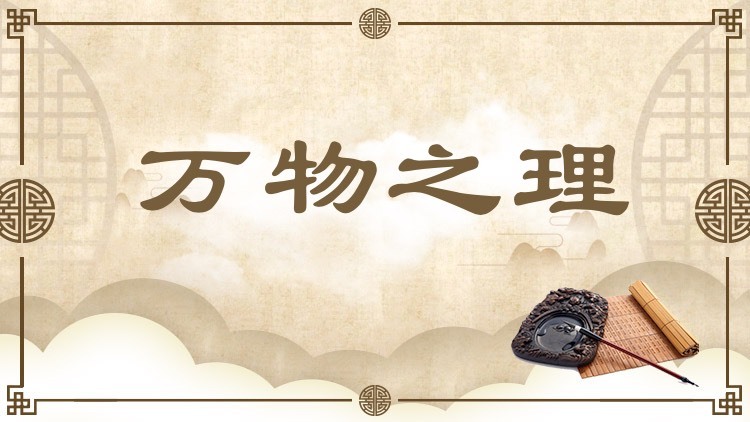Universal Principle

各种事物的理。古人认为,不同的事物之中包含着各自的“理”。“万物之理”可以指事物或人的属性,也可以指事物运行或人的言行所遵循的规则。有些人会强调“万物之理”的差异性,万物有着各自不同的“理”,“理”构成了事物间的区别;有些人则主张,万物所具之“理”虽然不同,但在根本上是统一的,万物只有一个“理”。
This term refers to the universal principle that governs all things. The ancient Chinese believed that things are all governed by their own underlying principles. This term refers to the intrinsic nature of objects and humans; and it also refers to patterns that govern both the movements of things as well as the words and actions of humans. For some scholars, the focus was on how different things are governed by different principles, so that these principles represent their diversity. Others, however, believed that even though principles governing different things vary, ultimately they are the same in nature, making the universal principle governing everything.
引例 Citations:
◎万物各异理,而道尽稽万物之理,故不得不化。(《韩非子·解老》)
万物各自具有不同的理,而道会合所有事物的理,因此道不得不随万物而变化。
All things have different patterns, and Dao encompasses all of them. Therefore, Dao has to change as things change. (Hanfeizi)
◎所以能穷者,只为万物皆是一理,至如一物一事,虽小,皆有是理。(《二程遗书》卷十五)
之所以能够穷理,只是因为万物都只有一个理,至于每一个事物,虽然渺小,但都有这个理。
The universal principle can be found because there is only one such principle that governs all things. Every object, no matter how small, is ultimately governed by such a principle. (Writings of the Cheng Brothers)
推荐:教育部 国家语委
供稿:北京外国语大学 外语教学与研究出版社
责任编辑:钱耐安





